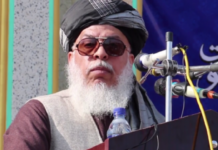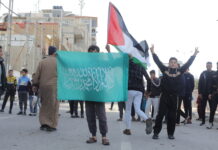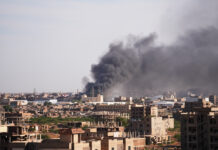After a spiritually intense day on the plains of Arafat yesterday, Hajj pilgrims are performing the Stoning of the Devil ritual, before walking to Makkah to perform their tawaf and sa’i and then returning to Mina later on Friday.
Making their way from Muzdalifa where they spent most of the night, 2 million pilgrims are undertaking a number of rituals to complete their Hajj pilgrimage.
Pilgrims are heading to the Jamarat where they are taking part in the “Stoning of the Devil” ritual, where they throw pebbles at three pillars called Aqaba, symbolising Satan.
For the next three days pilgrims will be sleeping in Mina to complete their pilgrimage.
A stampede in Mina in 2015 claimed the lives of 2,300 people – the worst disaster in the history of the Hajj.
Saudi Arabia says it has deployed more than 100,000 security personnel to keep pilgrims safe this year.
The huge crowds took part in the stoning rite under strict surveillance, with police tape guiding the flow of pilgrims, cameras installed everywhere and helicopters hovering overhead.
Subscribe to our newsletter and stay updated on the latest news and updates from around the Muslim world!
The shadow of the 2015 stampede still looms large over the ritual.
Iran, which reported the largest number of victims in the disaster, did not send its pilgrims to Hajj last year but Iranian authorities say more than 86,000 Iranian pilgrims are taking part this year.
The stoning ritual marks the first day of the Eid al-Adha feast, or the feast of sacrifice, which commemorates the prophet Abraham’s willingness to sacrifice his son.
The holiday is marked by the sacrifice of a lamb instead by Muslim communities around the world.
Meanwhile, Tawfiq Al-Sudairi, the deputy minister of Islamic affairs, call and guidance, has stressed the Hajj must be disassociated from political and sectarian divides.
He said: “The Kingdom has disassociated Hajj from politicisation and political and sectarian slogans since it was founded by King Abdul Aziz bin Abdul Rahman…
“Saudi officials always emphasize this strategic concept, from which all governmental authorities and service programs are launched to assist pilgrims. Therefore, it is always being reaffirmed that Hajj is a religious ritual that must be elevated and that it is so much purer than political and sectarian matters.”






















